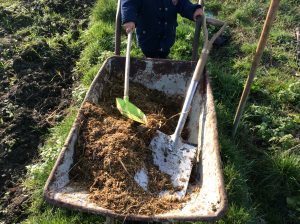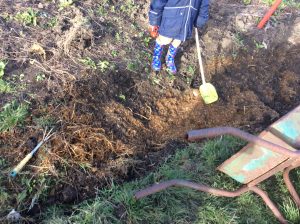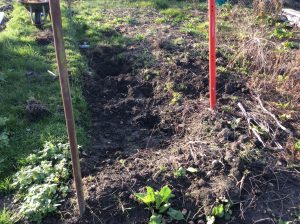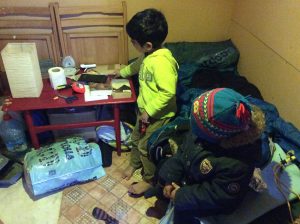Land memories and identity
To be connected to the land seems to be a privilege and a rarity for a child growing up in the urban metropolis of London, with its labyrinth network of houses, streets, emerging apartment blocks, and high rise flats of the past. A bleak urban reality; only if you let it become one.
To be whole hearted, close to the land, and have a clear mind seems to call onto the pastoral ethics of Virgil and Aristotle, but the countryside and its rustic charms are nearer than one would imagine. The conveniences of time, technology, and information in the modern day age make it possible for the demarcation between country and town life be adjusted; for those that seek its benefits and comforts.
There is no excuse to utilise the green spaces and community gardens that are popping up across London; whether its part of a local park or attached to a school.
Being close to the land means investing, looking after and nurturing. An opportunity that children will benefit immensely from, as they will create memories and feelings of accomplishment. More importantly they will associate self-esteem with a respect for the environment and its resources.
The effort a child puts into growing one tomato or pea will help them to develop an awareness for the resources around them. Needless to say, the skill of growing is one they will be able to take, wherever they grow.
When a child invests effort into a piece of land they develop a sense of responsibility and identity. When toiling away at a pot, a patch, or even a bush, a child is able to see visible results of their efforts. A remedy to today’s quick fix culture, because with gardening results are proportionate to efforts and patience is necessary for long term results.
Muhammad’s land
The exercise of digging is important for Muhammad physically and neurologically. When digging Muhammad is able to challenge his emotions towards a purposeful task and he is exercising his hands and muscles in a non strenuous way. This helps with hand to eye coordination.
Muhammad’s patch is a modest size about 3 feet by 8 feet. The patch above have been weeded and tilled. I kept it simple for Muhammad. He picked the weeds carefully and with much thought, a few of his questions were: ‘why are the weeds here’, ‘why are we taking out the weeds?’
I explained that, ‘the weeds take away the plant’s good energy and they make the plant weak so we need to take the weeds out so that the plants can grow’.
This answer satisfied Muhammad and he continued with digging the land. At first he required supervision with pushing the spade into the earth, and then lifting up small amounts of soil. After two of three digs he was proficient to continue with small digs.
Adding the fertiliser

When we entered the allotment there was a mountain of manure kindly provided by the allotment committee; it stood there proudly painted in yellow rays, breathing warm vapours towards the low sun in the bright winter’s sky. The wheelbarrow we had is an ancient one but still functional and it was fun pushing it to the manure mountain.
Muhammad asked, ‘why do we need to put the manure?’. This was the question I was waiting for. This question is the springboard to explaining about the importance of natural resources and how everything can be recycled and used for a better purpose.

I left the grand task of applying the manure to Muhammad. Yusuf, who was watching most of this time, vocalised the need to take an active role in applying the natural fertiliser.
As you can see Muhammad worked hard and by this stage it he was starting to feel the result of his exertions. It was time for a break.
Inside the hut we had a healthy snack of fruit and water. The importance of shelter surfaced. Spending time outside is an effective way of detoxifying childhood, mentally, physically, emotionally, and culturally. I could see the look of gratitude on their faces as we entered the hut, their faces lit up like the camping bulb above us.
It was a hard day’s work but a very rewarding one. The children learnt the importance of land, hard work, and shelter, and also the skill of preparing land.
Muhammad declared, ‘we need to go home and tell grandmother about my land’. Already home and land were closer; especially after the toil and effort of the morning.
Muhammad’s patch of land is part of his grandfather’s allotment patch. The helpful and affable allotment chairman explained that it would be possible to transfer allotment plots between family members with a written request; if need be in the future.

